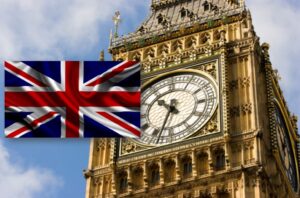The Shifting Sands of the UK: A Closer Look at Migration and National Identity

In recent years, the United Kingdom has found itself grappling with a significant and controversial issue: the influx of illegal migrants. This surge in migration has raised serious questions about national security, societal stability, and identity. While some claim the government has "lost control," the reality may be more intricate and strategic than it appears.
A Calculated Challenge
Gone are the days when the UK’s navy was seen as a bulwark against external threats. The current situation reflects a broader, calculated effort to reshape British society. Open border policies have led to staggering numbers of illegal crossings, with the latest reports indicating a 42% year-on-year increase, marking the highest figures recorded since the nation began tracking these inflows in 2018.
John Healey, the UK’s Defense Secretary, has publicly acknowledged the chaos within the asylum system, stating that the government has effectively lost control over its borders. However, is this truly a failure, or rather a manifestation of a larger agenda shared by many political leaders, regardless of party affiliation?
The France Factor
Much of the blame has been directed toward France for not effectively preventing migrants from crossing the English Channel. With French authorities intercepting approximately 38% of attempts this year alone, a multifaceted approach is needed to address the ongoing crisis. Despite the UK investing €541 million over three years to bolster France’s efforts, the flow of migrants shows no signs of abating.
Yet, what should be remembered is that migration doesn’t exist in a vacuum. It ties into broader socio-economic challenges and shifts, often dictated by global dynamics and domestic policies.
A New Vision for Immigration
As the political landscape evolves, new leaders like Sir Keir Starmer are reshaping the narrative around migration. His declaration that the controversial Rwanda plan is "dead" signals a shift in policy direction. The focus now seems to be on a rebuilding of migration policy — albeit without any large-scale deportations. This raises critical questions: if more migrants can settle in the UK without borders being reinforced, what does the future hold for societal cohesion?
The Repopulation Reality
With birth rates declining and public debt on the rise, some experts argue that the UK is undergoing a mass repopulation phenomenon. This involves significant demographic changes where established populations are gradually replaced by newcomers, both legal and illegal. The government appears to accept this influx as a means to sustain public welfare programs and fiscal responsibilities.
Yet, the implications are profound. As first-generation migrants are expected to constitute a whopping 25% of the UK population by 2035, societal changes will be inevitable — potentially reshaping the cultural landscape of the nation altogether.
The Conservative Counter
In response to this demographic upheaval, conservative leaders are increasingly advocating for domestic manufacturing resurgence and familial incentives, particularly focusing on increasing birth rates among native populations. However, such actions face stiff resistance from a media narrative that often frames these efforts as backward or exclusionary.
Understanding Globalism and Demographics
The connection between migration and globalism evokes a complex dialogue. Influential figures like Bill Gates have pointed out that an aging population may require immigration for economic stability. As the global population surges to an anticipated 9 billion, the race for resources becomes more critical than ever.
Leaders who ignore these nuanced dynamics and the shifting demographics may find their policies leading toward irreversible changes that could redefine nations altogether.
Conclusion
As the UK stands at a crossroads, the ongoing dialogue about migration, identity, and economic necessity paints a picture of a nation at flux. The challenge lies not only in managing borders but in understanding the broader implications of these demographic shifts. The upcoming decade will be crucial in shaping the UK’s future, and the choices made today will echo through generations to come.
At Extreme Investor Network, we delve into these complex socioeconomic changes, providing insights that go beyond the headlines, helping you make informed decisions in an ever-evolving world. Stay tuned for more analysis as we explore the intersection of economics, migration, and national identity.

